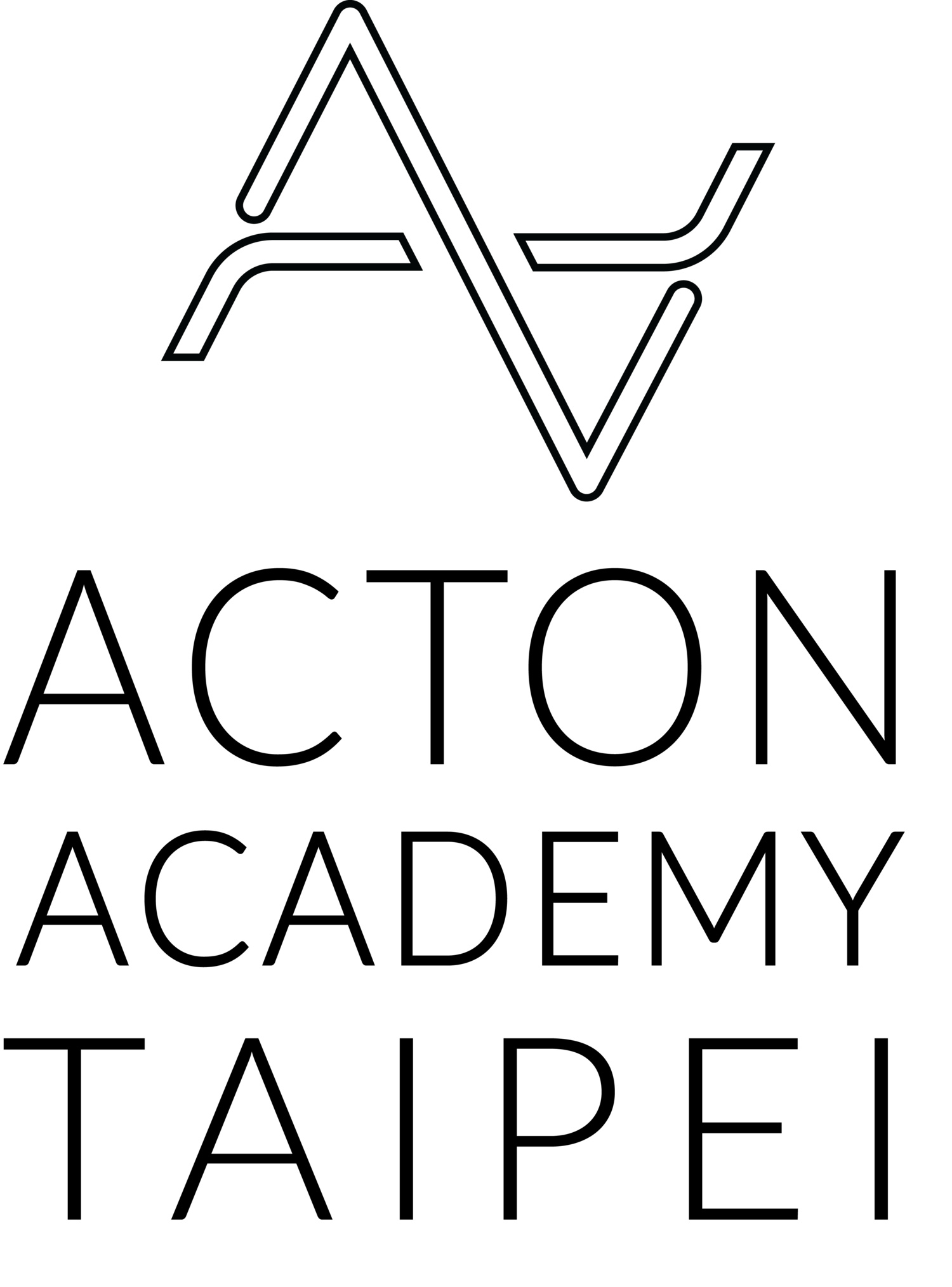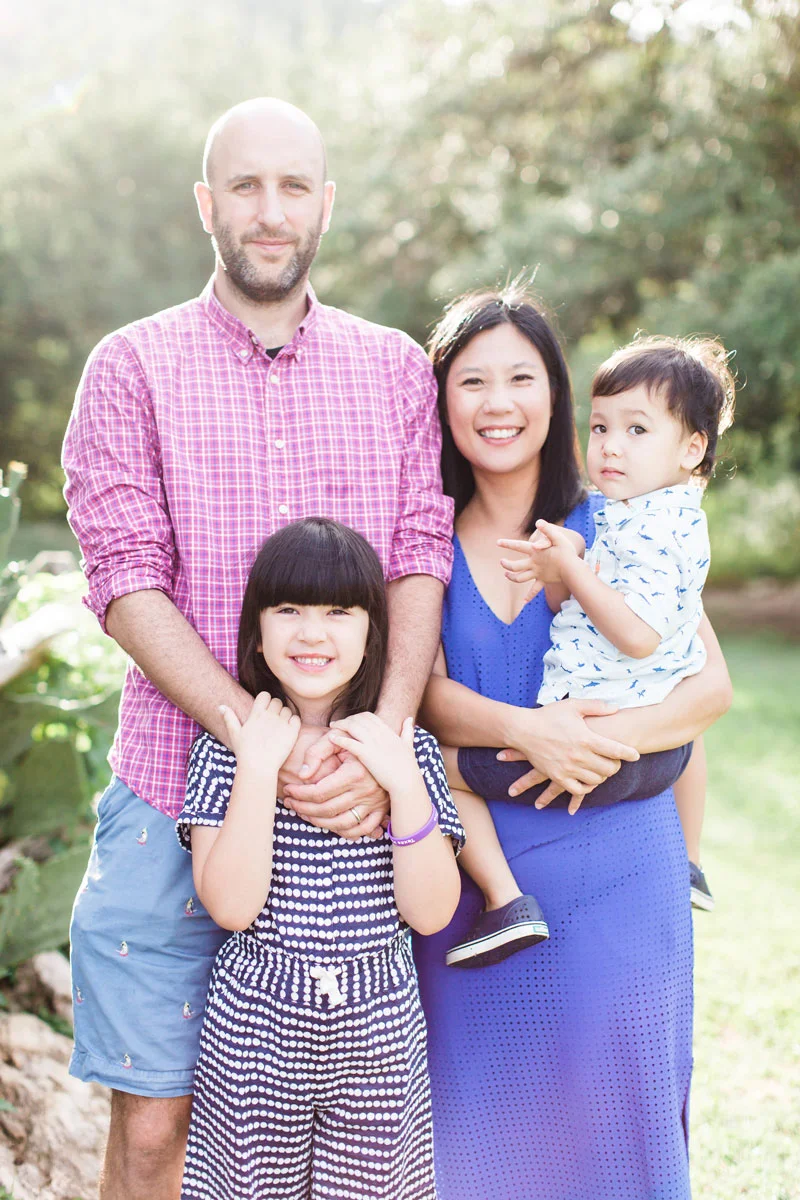Why we started Acton Taipei
September 2018
If someone had told me two years ago that I would be starting a school for my daughter, I would have laughed at the idea. She was thriving at her international school – making friends and coming home smiling everyday. I felt assured that her education was in good hands.
Then, one day, my daughter came home and said, “Mom, I’m stupid. I can’t read like the other kids.” My heart sank. It was like a slap to the face. I had enrolled my five-year-old in an international school because I thought their “play-based” curriculum would shield her from exactly such hurtful comparisons. I knew, in my heart of hearts, that what was most important at this stage of her life was that she felt good about herself and kept her innate curiosity intact. I didn’t care that she was on reading level one, while her classmates were on reading level six.
I had failed my daughter. I had incorrectly assumed that a cookie-cutter education would suffice for my beautiful, special child. At home, I could see sparks of genius in her, but the international school I had sent her to had already convinced her that she was not good enough. They had not nurtured her interests and talents, instead focusing on arbitrary grade-level standards, leaving her ready to give up on learning before her sixth birthday. I scrambled to find an alternative.
I used my Ph.D. research skills and embarked on a quest to find the best, most progressive, state-of-the-art educational model out there. I had an intuitive idea that whatever was next for my daughter had to be truly personalized and student-led. It had to be revolutionary and turn learning upside-down so that students would become the teachers. I spent more than a year doing this research and, during that time, Acton Academy came up again and again.
Acton was so interesting to me because it had figured out an open secret – so much of what is learned in school can be taught better and more efficiently using online resources. For example, Khan Academy teaches the exact same math skills covered in conventional math lessons at schools, BUT it can do it faster and more comprehensively. How? Khan’s adaptive questions pinpoint where students are getting stuck and adjust accordingly, by giving more practice problems or suggesting students watch certain video lectures again. Students don’t need to move on to the next topic until they’ve mastered the current topic just to keep up with the rest of the class. The content is personalized to each student.
The greatest thing about it was that taking advantage of online learning frees up the teacher to pay attention to other, arguably more important aspects of the student – those qualities that cannot be quantified by standardized testing. It was exactly those qualities, such as compassion, grit, and perseverance, that I felt was especially important for my daughter. Online learning also frees up more time in the school day for students to tackle real-world, hands-on projects, such as writing plays, starting businesses, planting community gardens, giving them more authentic opportunities to express and nurture their interests and talents.
All of it sounded so beautiful in theory, but would it actually work on my child? I tried a little experiment and signed her up for an online phonics program to see if it would help with her reading. For eight weeks, we spent 20 minutes every night playing online phonics games. Five weeks later, I went to pick my daughter up at school and she ran over with the biggest smile, holding a book proudly in her hand. She showed me the book and her teacher, grinning from ear to ear, said, “She moved up a reading level today!” She had not moved up a single reading level in the previous seven months of school. I won’t lie… there were tears of joy that day.
A few weeks after that, my daughter proceeded to blow me and her teacher away by whizzing through another five reading levels before the end of the school year. Her teacher was amazed and exclaimed, “I have never seen a student move that fast through reading levels!” It was exactly the success that my daughter needed to have before the end of the school year. She stopped making the self-defeating comments that had so worried me and regained her natural eagerness to learn. I knew that Acton Academy was what I wanted full-time for my daughter.
And now, on the eve of a new school year, I feel incredibly grateful and excited to embark on another journey, this time not just with my own daughter, but with a group of intrepid founding families and an incredible guide, ready to tackle 21st-century learning the Acton Academy way in Taipei!
May 2020 Update
We are now on the home stretch of our second year running Acton Academy Taipei. I’ve learned so much since we first launched. What initially attracted me to Acton were the hands-on projects and the self-paced learning. While these two things are still wonderful and have allowed my daughter to make leaps and bounds academically, I know now they are not the “magic sauce” that makes Acton such a special place for children to grow and thrive. It is something much simpler; it’s a life-changing story woven through every single day at Acton - The Hero’s Journey. What is the Hero’s Journey? Think Lion King, Moana, or Luke Skywalker. All of these characters underwent incredible transformations and emerged as Heroes in charge of their own destiny. This re-framing has revolutionized the way my daughter approaches life and tackles challenges big and small. She is not a victim; she is a Heroine who can do hard things and will change the world with her gifts.
Want to know more about the Hero’s Journey? Check out this blog post.
兩年前,如果有人說我會為我女兒成立一所學校,我一定對這提議一笑置之。當時,她就讀於一所國際學校,每天在學校認識新朋友,回家時總是笑咪咪的。因此,我深信她的學校教育很順利。
直到有一天,我女兒回家跟我說,「媽媽,我好笨,我都沒辦法像其他同學一樣讀得有快又好」。我的心頓時一沉,這句話像一巴掌狠狠打在我臉上。本來,讓五歲的她就讀國際學校,是因為看中該校「玩中學」的課程,讓她免於這些傷人的比較。因為我深深理解,對這個階段的孩子來說,最重要的,是要能對自己的感知良好,同時完整地保有天生的好奇心,發展並培養興趣和天賦。即使全班同學的閱讀都達到六級,而她只有一級,我也不在乎。
然而,我讓我女兒失望了。我誤以為這樣一個制式的套裝教育,足以應付我那美麗而特別的孩子。在家的時候,我總是會看到他初綻的聰慧光芒,但我幫他選擇的國際學校,卻已經說服她是一個不夠好的孩子。他們並沒有培養她的興趣和天賦,反而專注於一套武斷的考試評分標準,讓她在六歲生日前,就產生放棄學習的念頭。我急忙尋找別的學習選擇替代。
運用在博士研究時的方法,我開始著手尋找最好、最進步、最新的教育模式。我直覺的想法是,無論這下一個學習選擇為何,都必須是真正個別化、以學生為主軸的教育方式。它必須是革新,且翻轉現在的教學,讓學生能成為教師。我花了超過一年的時間來研究,在這期間,愛騰教育(Acton Academy)一直不斷出現。
愛騰教育對我來說十分有趣,因為它明白一個公開的秘密,就是透過線上資源的方式,可以更好且更有效地學習學校裡所教的東西。舉個例子,可汗學院(Khan Academy)教授和傳統學校一模一樣的數學課,但透過可汗學院卻能更快且更易理解。那是怎麼做到?可汗學院個別化點出每個學生的問題,按照學生學習卡住的部分進行調整,給予更多實作練習,或建議學生重新觀看某支影片。在完全掌握這一章之前,學生可以不必為了跟上全班的進度,而進入下一章節。學習內容完全根據個別學生客製化設定。
更棒的是,線上學習,讓老師有餘力跟多的時間,可以關注其他層面、對學生來說更重要的能力,尤其是那些很難以標準化量化評量的素質,例如同理心、意志力、耐力等。我認為這些素質對我女兒而言,特別重要。線上學習也能讓學生在學校上課的時候,有更多時間來進行真實世界的動手實作,例如寫
劇本、創業、規劃社區花園,給予他們更多真正的機會來展現和培養他們的興趣與天賦。
以上這些理論上聽起來都很棒,但真的會對我女兒有幫助嗎?所以,我做了一個小小的實驗,幫她報名線上音標課程,看看是否對她的閱讀有幫助。接下來八個星期,我們每晚花20分鐘玩線上音標遊戲。五個星期後,我到學校接女兒,她的小臉滿是笑容地奔向我,驕傲地將手上的書拿給我看。她的老師也很開心地告訴我「她的閱讀今天升了一級唷!」在過去七個月,她的閱讀從不曾升級。不騙你,那天我喜極而泣。
過後的幾個星期,我女兒繼續帶給我和她的老師驚喜,在學年結束前,他的閱讀連續升了五級,她的老師非常驚訝地說「我從來沒見過一個學生的閱讀能力可以進步得這麼快」。這其實是女兒在學年結束前需要達到的成就。她不再做出一些讓我非常擔心的貶低自我的評價,也重拾她與生俱來的學習熱誠。我知道,為了女兒,我需要全天的愛騰教育。
現在,邁入新學年前夕,我充滿感激和興奮地踏上下一段旅程。這次不只和我女兒,也和一群毫不畏懼的創校家庭,還有一位超棒的輔導員,準備在台北,以愛騰教育的方式,面對21世紀的學習。


